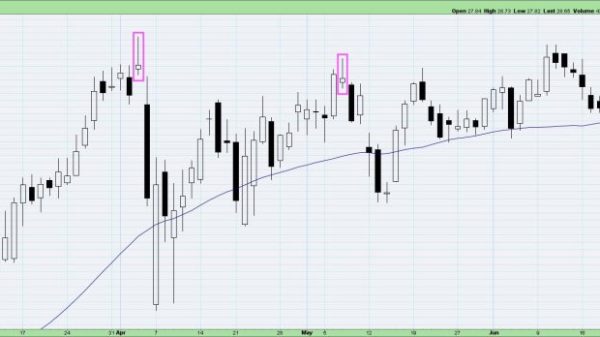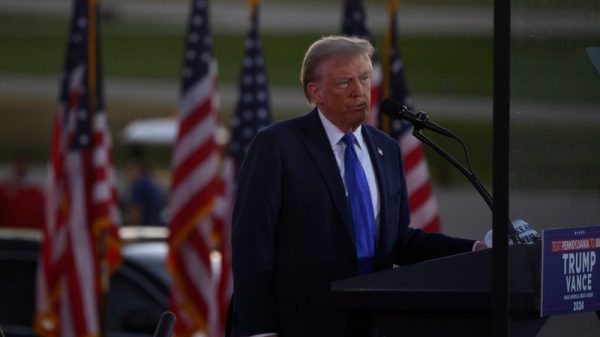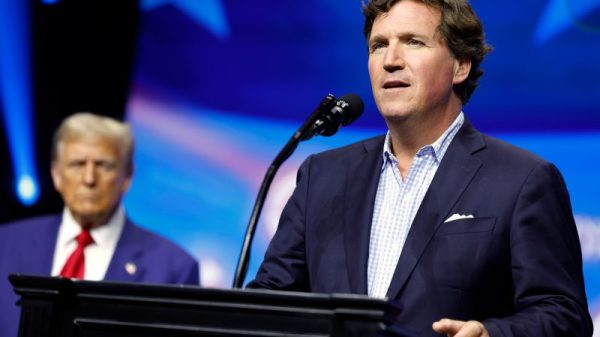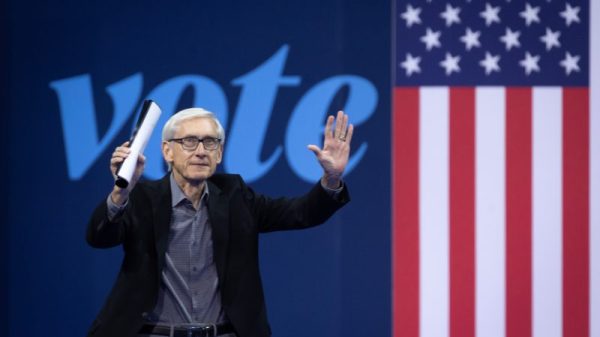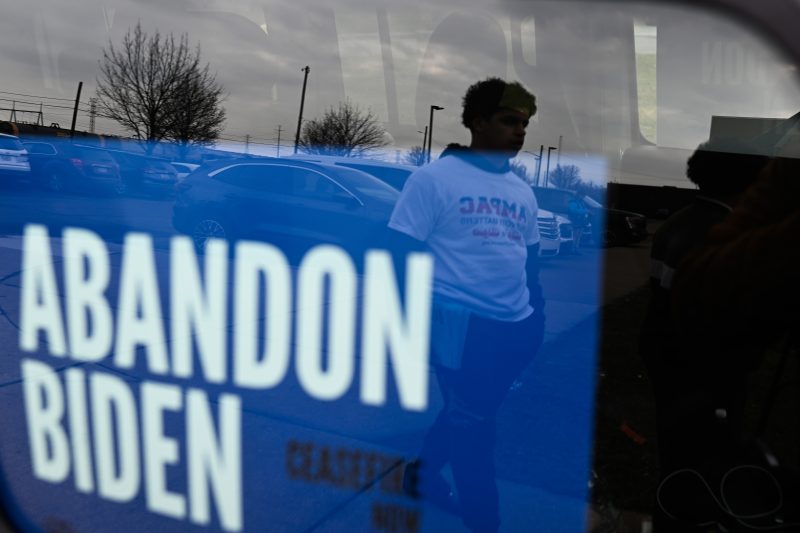Michigan primary voters on Tuesday gave President Biden and former president Donald Trump unsurprising and lopsided victories that will hasten their respective marches to their party’s nominations.
Late Tuesday night, Biden was leading “uncommitted” 80 percent to 15 percent, while Trump led former United Nations ambassador Nikki Haley 67 percent to 28 percent.
But while the presidential nominating contests aren’t really in doubt, plenty of eyes were fixed on Michigan for clues about the general election.
There was a Democratic effort to get Michiganders to vote “uncommitted” in protest of Biden’s handling of the war in Gaza. And on the Republican side, Haley has pressed the idea that the GOP base’s continued reluctance to fully embrace Trump makes him a liability in November.
Below are some takeaways on those and other subjects.
The idea behind the “uncommitted” campaign was to get lots of people in a state with a disproportionate number of Arab Americans to make a point — and perhaps send a message to Biden about his Middle East policy favoring Israel too much. It was led by some prominent Democrats, including Rep. Rashida Tlaib (D-Mich.), a Palestinian American congresswoman.
There is no question it got people’s attention on Tuesday. Whether it really changed the 2024 paradigm is another matter.
The 15 percent of the vote the option was getting several hours after the polls closed is substantial. But context is important.
The raw number of people voting for that option was substantially higher than it was in the 2012, 2016 and 2020 Michigan primaries, when around 20,000 people picked “uncommitted” each time.
But the actual percentage was only modestly higher than it was in the last Michigan primary featuring an incumbent president, in 2012. Then, “uncommitted” got about 11 percent against Barack Obama. That was a much lower turnout race, though.
Another thing to remember is that the 2012 nominating process featured lots of substantial performances for “uncommitted’ or “no preference.” The option got 42 percent in Kentucky, 21 percent in North Carolina, and between 11 and 14 percent in Rhode Island, Tennessee, Maryland and Massachusetts, in addition to Michigan.
The comparison to Michigan today is far from perfect.
For one, these 2012 races featured no other actual candidates, so critics of the incumbent had basically one other option. (Michigan’s ballot featured Rep. Dean Phillips and Marianne Williamson combining for nearly 6 percent.)
For another, some of these states had plenty of conservative Democrats from the days when that was more of a thing — unlike Michigan today. But not all did; Rhode Island, Maryland and Massachusetts weren’t exactly bastions of leftover conservative Democrats like Kentucky, North Carolina and Tennessee.
These uncommitted votes clearly signal something quite different — and potentially more troubling for the incumbent president — than those 2012 protest votes. The real question is whether support can be marshaled in other states and in other ways to make Biden truly feel as if he needs to change his ways and mind his left flank.
The protest vote got a foothold after an initial false start in New Hampshire; now it’s about signaling that the movement has some staying power.
Haley has in recent weeks set about arguing that her vote share, too, is a sign of vulnerability for her party’s front-runner.
After taking 43 percent in New Hampshire and nearly 40 percent in South Carolina, she cast those numbers as betraying how Trump can’t win the general election — given his status as a “de facto” incumbent.
What the Michigan primary reinforces is that Haley’s vote share will not be near 40 percent in the coming contests, but she’s not bottoming out just yet.
New Hampshire and South Carolina were always likely to be Haley’s high-water marks — given the prevalence of independent voters in the former and the fact that the latter is her home state. The results in Michigan and polling in the states ahead on Super Tuesday next week suggest far less of an appetite for the alternative.
We don’t have exit poll data showing how many voters are balking at Trump in the general election. But nearly 30 percent of the vote is far from nothing.
It’s better than she polls nationally and in many of the Super Tuesday states. Haley also again overperformed the polls — as she did in New Hampshire and South Carolina — which suggests these polls might be overselling Trump’s strength (in the primary at least).
This is a state where the state party apparatus has gone very Trump-y in recent years. And Trump’s hold on the GOP nomination is so firm that it’s been clear for a while that Haley votes are essentially protest votes.
It seems those protest votes will keep rolling in. Again, though, it’s hard to know what that portends for November.
If you look closely at Haley’s rhetoric in recent days, it’s been clear she’s not really arguing anymore that this race is winnable. Instead, she seems to be making a point about how Trump is going to torpedo the party.
And Tuesday night brought more of that. On CNN as results were rolling in, Dana Bash asked Haley whether the party had simply moved away from her brand of conservatism and was now “about Donald Trump.”
“It is very possible,” Haley responded, adding: “We are giving them an option.”
Haley has basically signaled she’ll stick it out through Super Tuesday because that’s what she said she would do. “Giving them an option” is not “I’m going to win.”
Her goal now appears to be making her point — and possibly, if Trump loses, being able to say (perhaps ahead of another campaign) “I told you so.”
That Biden’s actual primary challenger, Phillips (D-Minn.), lost to “uncommitted” wasn’t terribly surprising. The “uncommitted” campaign had significantly more momentum behind it.
Phillips could still be the alternative to Biden in other states — but Michigan suggests he won’t be much of one.
In fact, Phillips on Tuesday night was in danger of finishing in fourth place, behind Williamson. Williamson suspended her campaign three weeks ago.







